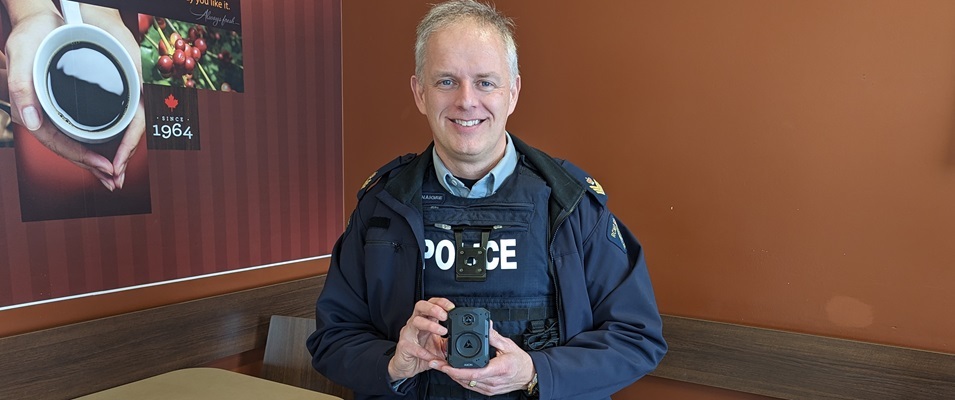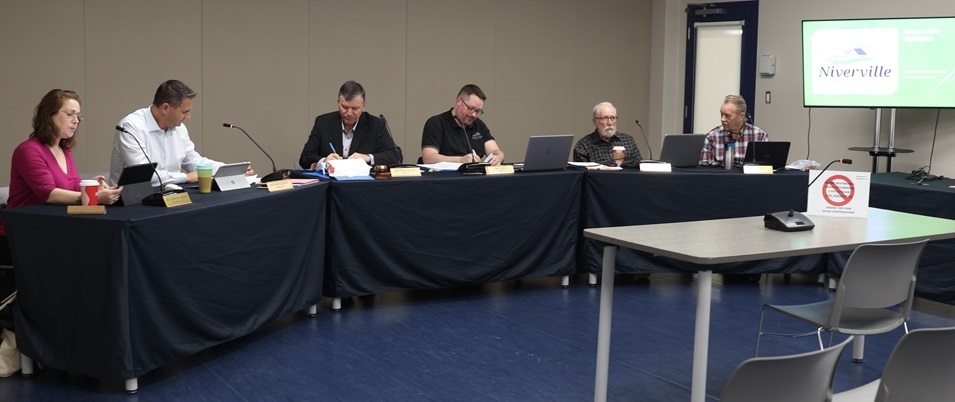
To the chagrin of some local restauranteurs, Niverville’s council voted unanimously in favour of accepting both the second and final reading of a new food truck bylaw that gives mobile food services the limited ability to set up shop around town this summer.
The first reading of the bylaw took place on May 16.
Since 2018, food truck policy fell under another bylaw which encompassed a broader range of temporary for-profit businesses. Under that bylaw, the only requirement for a vendor to operate within town limits was to procure a license from the civic office.
Under the new bylaw, much greater restrictions will be imposed on food truck vendors in Niverville.
Main Street will be off-limits altogether, with the exception of the weekend of the annual fair. Council has determined two preferred locations for trucks during the balance of the season, including the Centennial Arena overflow parking lot and Hespeler Park.
To ensure some protection for local restaurants, council added that a 200-meter buffer must be provided between the mobile food vendor and restaurant. This rules out any opportunity for trucks to set up along Drovers Run.
Additionally, changes have been made to the structuring of the license fees, which range in price from $250 for a day to up to $1,500 for the season.
In researching council’s options over the past weeks, CAO Eric King says he worked alongside the director of the Chamber of Commerce to see how other communities across the province handle the food truck issue.
Niverville’s buffer of 200 meters from any restaurant is the most restrictive of all of them, he says.
On a similar note, the new licensing fees equate to about the same cost that the average brick-and-mortar business would pay in municipal property taxes in the same period of time.
These tough regulations, council believes, will limit the number of trucks setting up shop and minimize the impact on local restaurants.
At the same time, council will waive all licensing fees if the mobile food service is also the proprietor of a local restaurant that pays municipal taxes. For example, if Pizza 311 decided to serve pizza at a ball tournament at Hespeler Park, the owner would pay no license fee to do so.
“As we continue to grow [as a community], we continue to get smarter and to have more rules,” King said. “And this is the next generation of rules.”
Councillor Chris Wiebe made a request that council revisit the bylaw in a year to assess how it has panned out. King indicated that it was already on the agenda for discussion at the fall planning sessions.
The benefits of creating a bylaw in the first place, King said, is that council can change the structure at any time with a simple resolution. The second advantage, he added, is that a bylaw is enforceable whereas a mere policy, such as some other communities have, cannot.
Enforcement of non-compliance is another matter that came to the fore. King says it will be up to hired bylaw officers, as well as those designated with such powers who work for the town.
“We have the authority, granted by MPI, to ticket people’s [trucks] and then send them a registered ticket through the mail,” King said. “So we don’t have to necessarily do it on the day of [the infraction].”
As for collection of the fine, King says that the town could put a lien on the offending vehicle if the ticket remains unpaid.
Two restauranteurs attended the morning meeting and council opened the floor to their concerns. One declared an interest in seeing the 200-meter buffer changed to 500 meters. Another asked that council restrict food trucks that sell wares which are already available at local restaurants, such as pizza.
“There’s a fine line that we try and balance between protecting our business community versus the fact that we live in a free enterprise economy,” said Mayor Dyck. “It’s not our job to say who can come and who can’t come. We don’t create monopolies or have that kind of control.”
It was added as well that the right for commercial competition is protected by federal law, tying the hands of those who might want to restrict it.
As council debated before the final vote, King encouraged them to consider voting on third reading without delay.
Currently, he said, two food truck applications are awaiting approval. Stalling the acceptance of the new bylaw would mean that their applications would be accepted under the old one, allowing them to set up wherever they please. And once in place, those vendors would not be accountable to new bylaw restrictions during their seasonal licensing period.



















